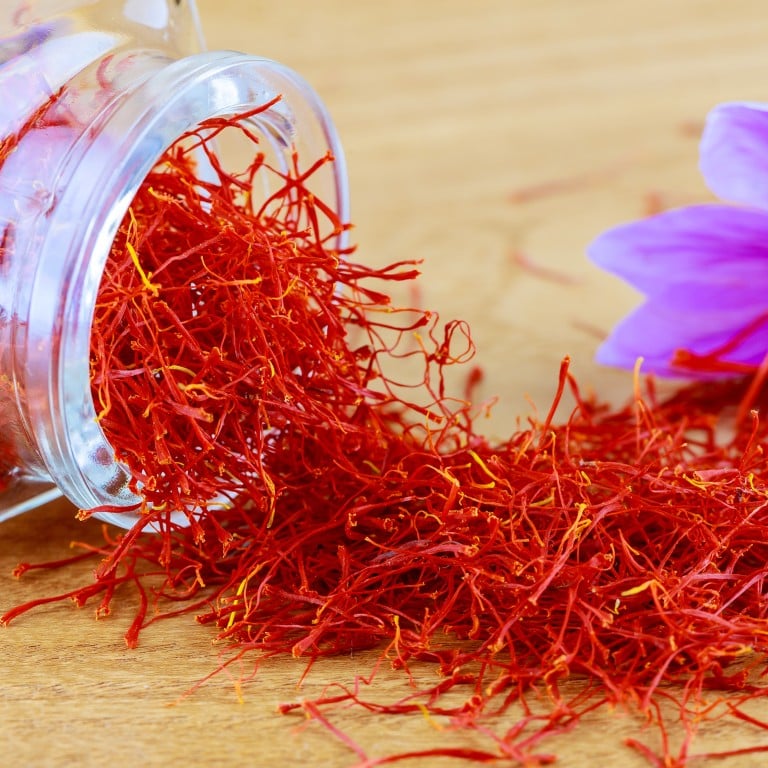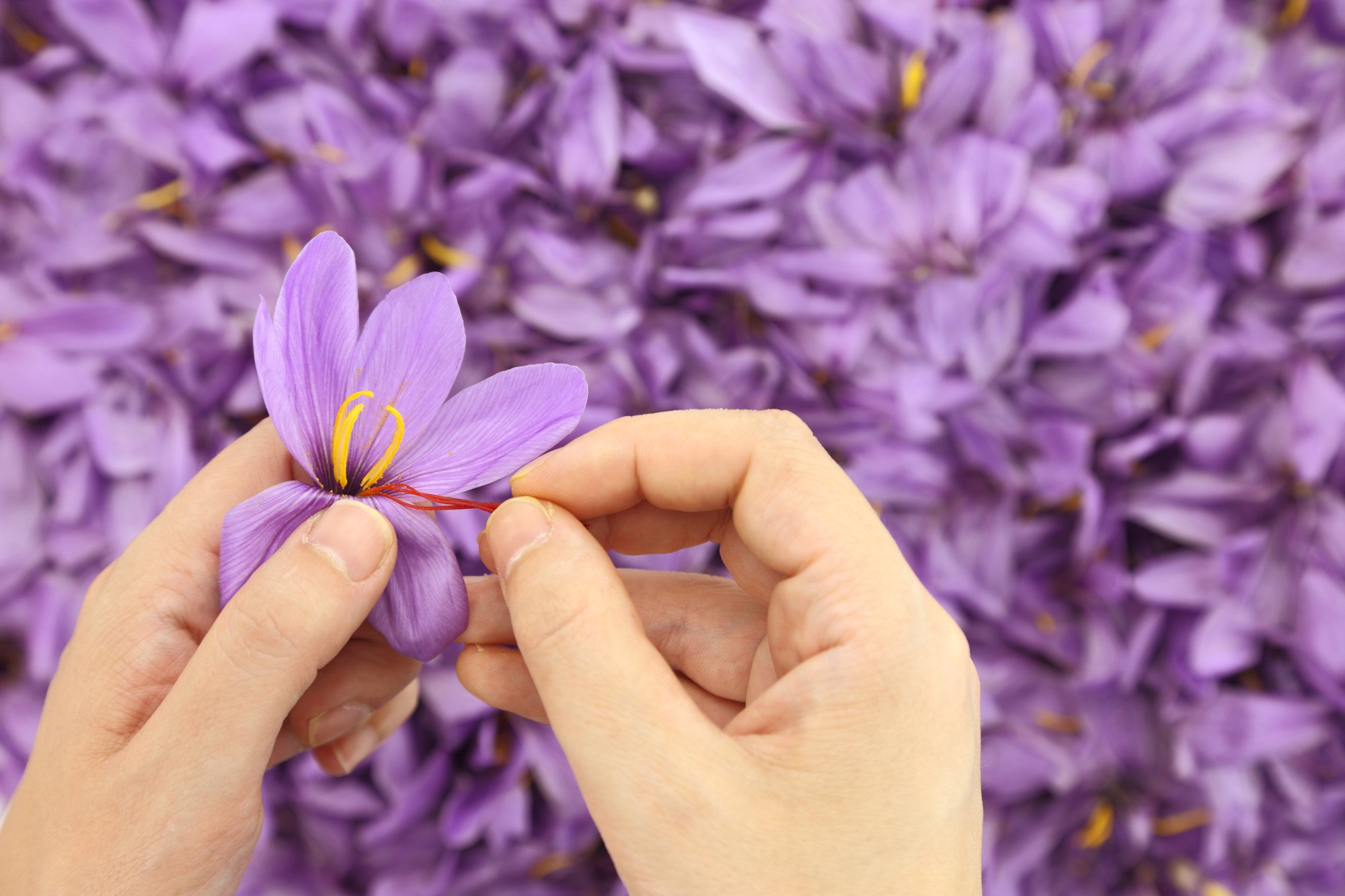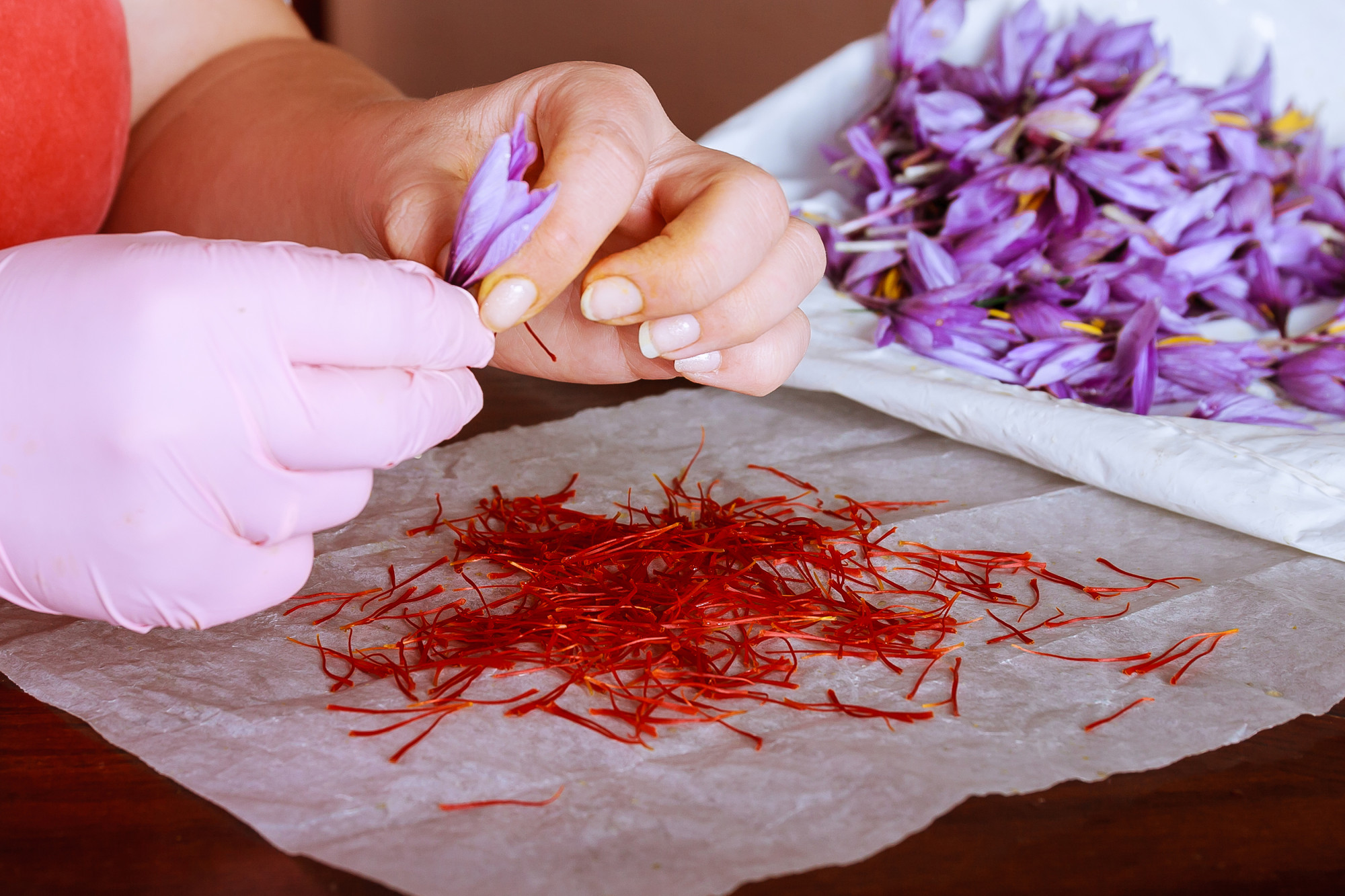
Saffron, world’s most expensive spice, has multiple health benefits – it fights diabetes, boosts memory, mood and immunity, and is good for skin
- Experts reveal why saffron is much more than a fancy food flavouring; the pricey spice has featured in Ayurveda – traditional Indian medicine – for centuries
- A superfood, it promotes heart health, is known to protect against disease and help with libido and PMS, and its antioxidants make it beautifying for the skin
Saffron, also called “sunshine spice” for its vibrant colouring, is a popular ingredient in Indian and Middle Eastern cuisine. Harvested by hand from the flower of the Crocus sativus, or autumn crocus, the spice features in many dishes, from rice pudding to curries, breads and pilafs.
The saffron grown in the northern Indian state of Kashmir is considered the finest of all, with 450g (1lb) fetching up to US$5,000.
At various points throughout history the spice has been worth more than its weight in gold. It commands such a high price in part because of the labour-intensive way it is harvested.

The spice features in plenty of modern beauty oils, creams and ointments, and has been scientifically proven to provide a range of health benefits.
Saffron contains powerful antioxidants. Studies suggest these compounds may target colon cancer cells to kill them or suppress their growth, while leaving healthy cells unharmed, for example.
Five superfoods that will boost your natural beauty
According to a study, safranal – the compound that gives saffron its distinctive taste and aroma – is an excellent mood and memory booster. It can also enhance learning and cognitive ability.
With its high amount of antioxidants, the spice has also been shown to prevent blood vessels and arteries from clogging.

Studies suggest that in women aged 20–45, daily consumption of 30mg of saffron can also help reduce symptoms of premenstrual syndrome (PMS) including irritability, pain, headaches and cravings.
Simply smelling saffron for 20 minutes may also help reduce PMS-related anxiety by lowering levels of the stress hormone cortisol.
What is the immune system and how do you optimise it? We ask the experts

Delhi-based beauty expert Shahnaz Husain says the micronutrients in saffron help renew skin cells.

To improve skin tone and lighten blemishes, Husain recommends adding a few strands of saffron to yogurt mixed with a few drops of lemon juice, and applying the mixture to the face for 20 minutes before washing it off with lukewarm water.

